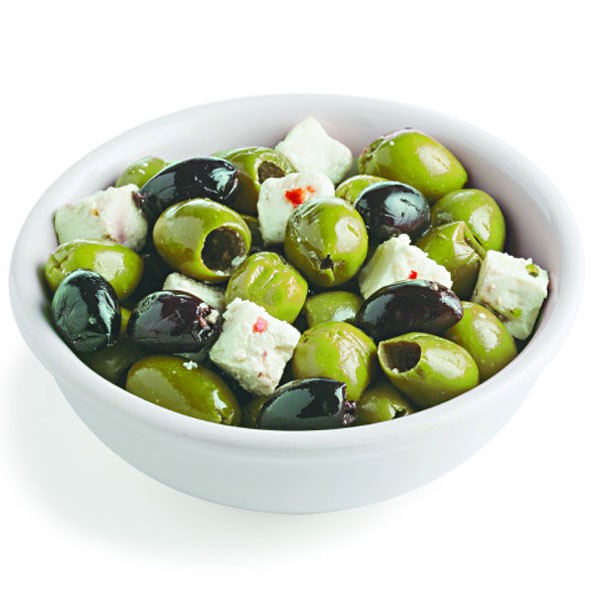Sevillano
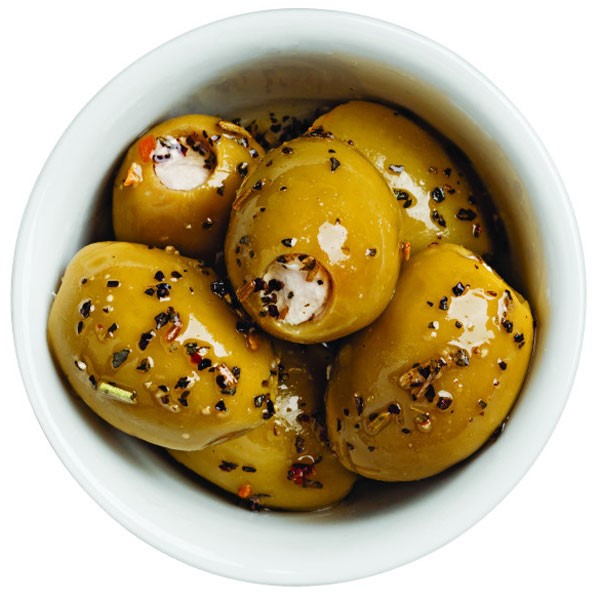
Known for their presence in the Mediterranean, these large, firm, meaty green olives are typically stuffed with savory fillings, such as garlic, and served with an apertivo—a pre-dinner cocktail. Just like other olives, the Sevillano olives are processed and cured before they can be eaten.
Nocellara del Belice
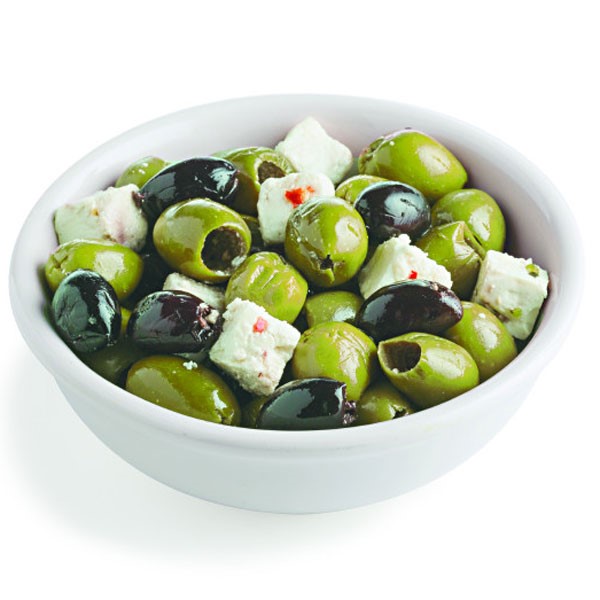
Also known as Castelvetrano olives, Nocellara del Belice are green olives primarily grown in Sicily. Did you know that the main difference between green, purple, red, and black olives is the length of time they spend ripening on the tree? Nocellara del Belice olives are picked before they have ripened, making them green olives. They have a mild, buttery, and salty-sweet flavor
Kalamata
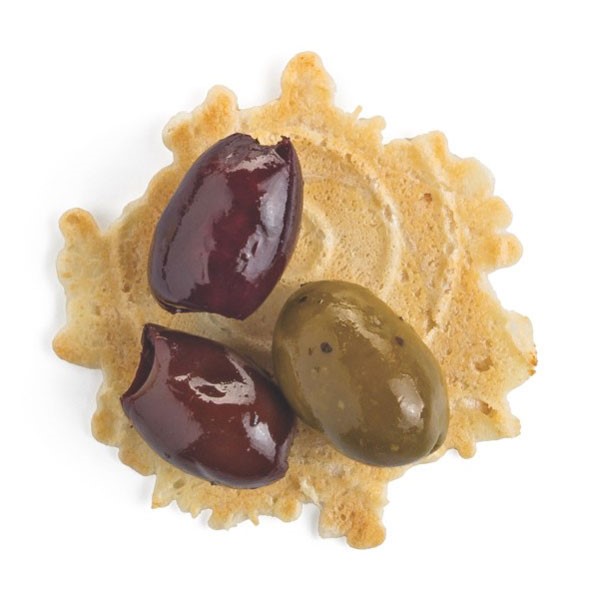
Kalamata olives are famous for their firm texture, almond shape, and dark eggplant-like coloring. They taste great on their own and also hold up well in cooking or baking.
Mammoth Black
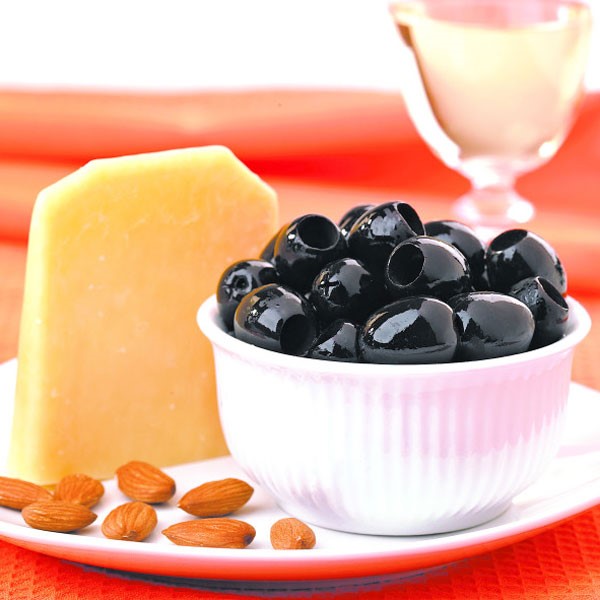
Large, round, and black—just as the name implies. These tree-ripened olives develop a strong, pungent flavor which is a nice addition to Pasta Puttanesca (a traditional Italian pasta dish made with tomatoes, olive oil, anchovies, olives, capers, and garlic).
Nicoise

These olives are grown and packed in the South of France. You may recognize them as the stars in a nicoise salad—the one with hard-cooked eggs, tomatoes, anchovies, and of course, nicoise olives. They have a mellow, nutty, and slightly sour flavor that pairs well with seafood, veal, or chicken dishes.
